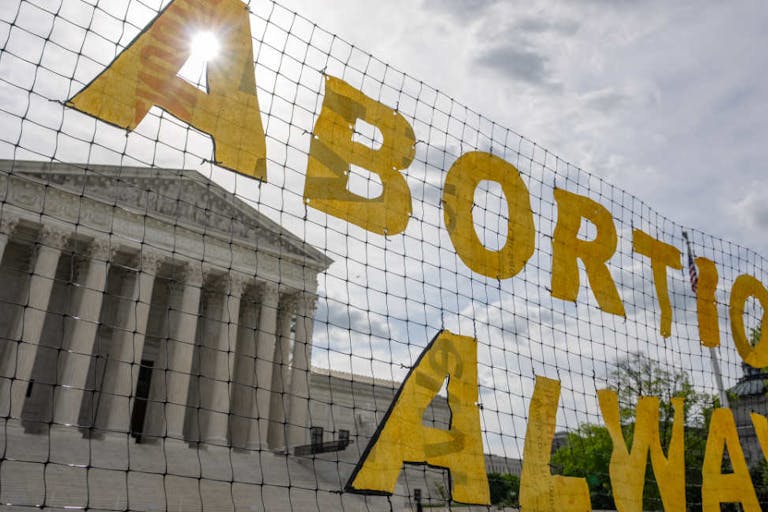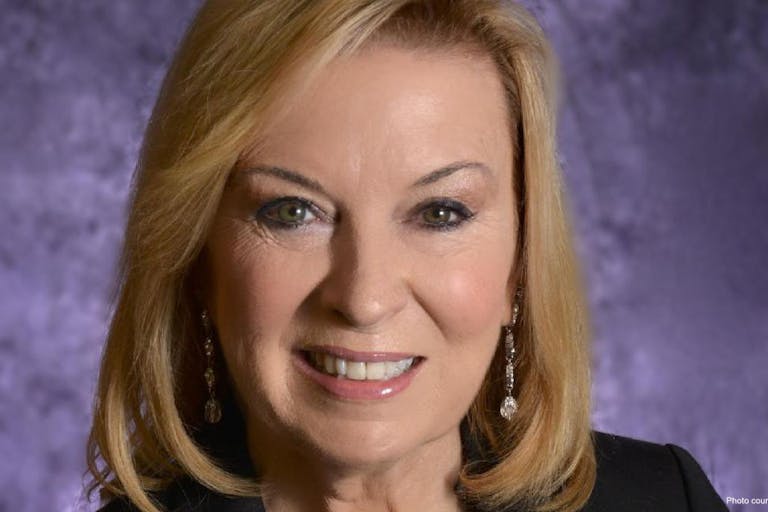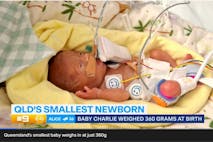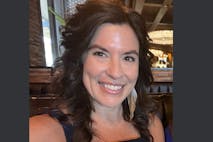
A growing number of Americans call themselves ‘pro-choice’ – but what’s really behind it?
Nancy Flanders
·
Pressured into abortion after rape, she now helps to save lives
When a male friend called Daria Monroe in distress, sobbing uncontrollably, the young college student drove to his apartment to comfort him. She soon discovered his emotional drama was an act, designed to manipulate her so he could get her alone and assault her.
Monroe told Live Action News, “I was moved by his tears and threw caution to the wind. As a result, I walked into a trap where this man was able to take advantage of me.” Monroe grappled with a betrayal by a man she had trusted, and then she found out she was pregnant by him. This, she later learned, had been his intention when he raped her.
Frightened and desperate, Monroe turned to her fiancé for support, but he was unsupportive, informing her that she needed to “take care of the problem.”
“We planned to marry, and he was upset that I was pregnant. He made it clear he didn’t want to raise another man’s child,” Monroe said. “Apparently, my ‘friend’ wanted to impregnate me to tear apart my relationship with my fiancé.”’
It was 1974, one year after Roe v. Wade, and the slogan, “my body, my choice” was everywhere. Monroe had nowhere to turn, and wasn’t aware of any pregnancy support center where she could get care. She did, however, ask friends if they knew about a home for unwed mothers, but nobody was able to help.
Monroe’s fiancé was acquainted with an abortionist and contacted him, making all the arrangements for the abortion. As he drove Monroe to the appointment, he promised to take her shopping afterward to purchase a few new dresses as a consolation.
“He told me to do what I needed to do and we’d go on as if nothing ever happened,” she said. “It made me angry that he acted as if my baby’s life was worth nothing, as if trading my baby’s life for a few dresses was acceptable. But I was afraid of him and felt trapped, like I had no voice, so I just did as he demanded.”
As she entered the abortion facility, Monroe noticed other young women appearing almost “comatose,” sitting stiffly with legs crossed, some pumping their upper leg furiously, the only discernible testament to their uneasiness. When her turn came, nobody looked her in the eyes – not even the abortionist who knew her fiancé.
“I remember the roar of the suction tube,” Monroe said. “And the pain was unbearable. They kept telling me to hold still, hold still. I remember thinking, please God, zap me from here.”
Afterward, Monroe experienced hemorrhaging for which she was given a pad. The bleeding eventually subsided; but she felt so ill she couldn’t lift her head from the pillow and developed a fever and chills, drifting in and out of consciousness while recovering at her mother’s home.
Monroe said, “I couldn’t get the horrible experience out of my head. There was no compassion at the clinic. The staff was just stone cold.”
She was later diagnosed with perforated stomach ulcers and was prescribed sedatives which helped to numb her emotions. “I walked around in a constant fog,” Monroe said. “The pills meant to ‘cure’ my ulcers kept me from thinking about the loss of my baby.”

Yet while Monroe had acquiesced to her fiancé’s demands, he was still angry about the pregnancy. Monroe assumed it was his way of coping with the abortion, but his cruelty inflicted deep wounds that ultimately resulted in Monroe’s suicide attempt.
Article continues below
Dear Reader,
In 2026, Live Action is heading straight where the battle is fiercest: college campuses.
We have a bold initiative to establish 100 Live Action campus chapters within the next year, and your partnership will make it a success!
Your support today will help train and equip young leaders, bring Live Action’s educational content into academic environments, host on-campus events and debates, and empower students to challenge the pro-abortion status quo with truth and compassion.
Invest in pro-life grassroots outreach and cultural formation with your DOUBLED year-end gift!
“One day he started hurling angry insults at me,” she said. “I went to my room and began praying for God’s forgiveness. I just couldn’t live this way anymore. I remember opening a bottle of my sedatives and downing the entire bottle with lemonade, my favorite drink. I felt my body drift away.”
Fortunately, Monroe’s roommates discovered her unconscious and called 911. During this time, Monroe recalled seeing Jesus and asking for his forgiveness. “I told him, please let me live and I’ll give my life to you,” Monroe said. “The next thing I remember, I woke up in a hospital room.”
Monroe was required to undergo mandatory counseling, but abortion was never discussed. Still, it was a time of healing. She severed the relationship with her fiancé, who had become physically abusive, and finally told her family about the abortion.
“Because of my trauma, I developed such compassion for women who had abortions but at the time I didn’t have a platform,” she said.
She later established a ministry at her church to provide support to post-abortive women after furthering her healing at a Rachel’s Vineyard retreat. “I know well the fear of being judged in the Christian community for past indiscretions,” Monroe said. “I wanted to help women who, like me, suffered for a decision they deeply regretted. Abortion damages a woman’s soul. I’ve been there, I know how it feels.”
Monroe eventually married and raised five children, yet God would later bring another child into her life. One day, she received a call about a woman, five months pregnant, who was considering an abortion. Monroe asked if she could have the honor of raising the woman’s baby.
“After that call, I prayed for guidance,” Monroe said. “I wrote a letter to the birth mother asking if I could adopt her baby. The woman called me and said it had been placed on her heart that her baby was meant to be with me.”
When Monroe traveled to pick up the baby, the birth mother greeted her with red, swollen eyes. As she handed the child to Monroe, she told her the baby was now hers. Monroe said, “I could see she was hurting, but she insisted that I raise her baby, knowing she was not in a place where she could provide for him. I later told our son that his birth mother was one of the most courageous women I ever knew.”
Today, the young man is serving in the United States military.
As the executive director of Women’s Hope Medical Clinic, Monroe is pursuing her passion: helping young women choose life for their babies. The clinic, through Hope Adoptions, is now licensed to facilitate adoptions.
“Every single day here, we battle life and death, but we never grow weary,” Monroe said. “We are emboldened by God to fight for the sanctity of life.”
Live Action News is pro-life news and commentary from a pro-life perspective.
Contact editor@liveaction.org for questions, corrections, or if you are seeking permission to reprint any Live Action News content.
Guest Articles: To submit a guest article to Live Action News, email editor@liveaction.org with an attached Word document of 800-1000 words. Please also attach any photos relevant to your submission if applicable. If your submission is accepted for publication, you will be notified within three weeks. Guest articles are not compensated (see our Open License Agreement). Thank you for your interest in Live Action News!

Nancy Flanders
·
Analysis
Cassy Cooke
·
Human Interest
Lisa Bast
·
Human Interest
Nancy Flanders
·
Human Interest
Melissa Manion
·
Guest Column
Unplanned Stories
·
Human Interest
Lisa Bast
·
Human Interest
Lisa Bast
·
Human Interest
Lisa Bast
·
Human Interest
Lisa Bast
·
Human Interest
Lisa Bast
·